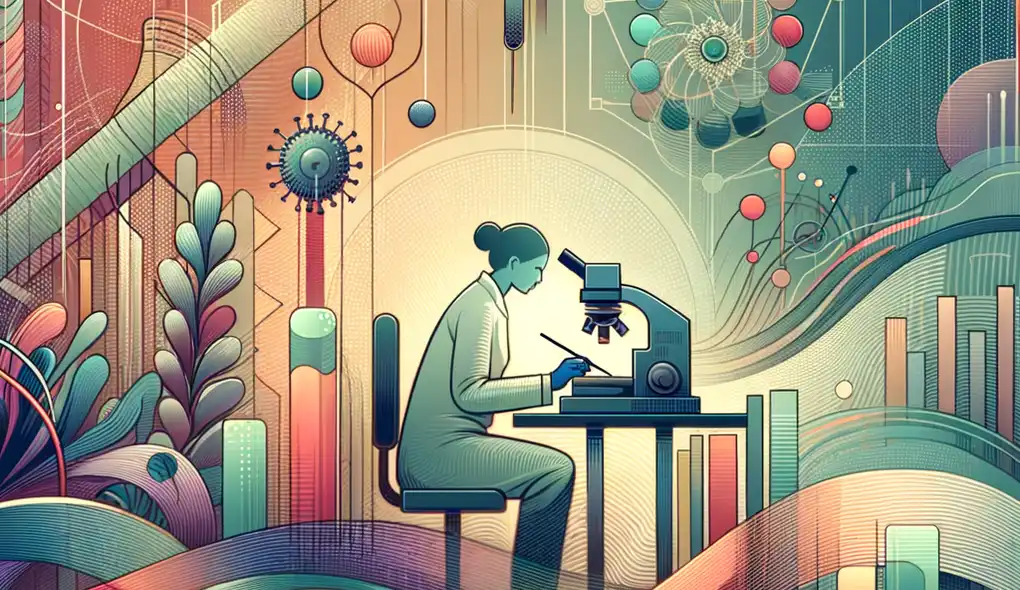How do you ensure data integrity in your analysis?
Microarray Analyst Interview Questions
Sample answer to the question
To ensure data integrity in my analysis, I follow a systematic approach. First, I carefully review the data to identify any outliers or inconsistencies. Next, I use advanced statistical software to validate the data and check for any errors or anomalies. I also cross-reference the results with the original source to ensure accuracy. Additionally, I maintain detailed documentation of my analysis procedures and results, including any adjustments or transformations applied to the data. Finally, I regularly communicate with my team members to discuss any discrepancies or concerns and collaborate to resolve them.
A more solid answer
Ensuring data integrity in my analysis is of utmost importance to me. In my previous role as a research assistant, I conducted microarray experiments and analyzed genetic data using statistical software such as R and Python. To maintain data integrity, I meticulously reviewed the experimental procedures and performed quality checks on the raw data. I also applied normalization techniques to correct for any systematic variations. To minimize errors, I followed strict laboratory practices and documented every step of the analysis process. Additionally, I collaborated with my supervisor and colleagues to validate the results and address any anomalies. I understand the significance of adhering to safety and quality standards in the laboratory, and I always ensured compliance.
Why this is a more solid answer:
The solid answer provides more specific details about the candidate's experience and skills related to microarray technology and laboratory practices. It mentions the use of statistical software like R and Python, as well as the application of normalization techniques. The candidate also highlights the importance of collaboration with colleagues and adhering to safety and quality standards. However, it could be further improved by providing specific examples of how the candidate ensured data integrity in their previous role.
An exceptional answer
Ensuring data integrity is crucial for the accuracy and reliability of genetic analysis. In my previous role as a Microarray Analyst, I implemented a comprehensive approach to maintain data integrity. First, I conducted thorough quality checks on the raw microarray data, ensuring that the experimental procedures were followed correctly. Before proceeding with the analysis, I assessed the data for outliers and applied appropriate preprocessing methods, such as background correction and normalization, using software like Bioconductor and GenePattern. I also reviewed the results in comparison to previous studies and analyzed replicate samples to ensure consistency and reproducibility. To document my analysis, I maintained detailed records of all the applied techniques, including parameter settings and software versions used. Furthermore, I regularly attended conferences and workshops to stay updated on the latest advancements in microarray technology and data analysis methods. By implementing these practices, I consistently achieved high-quality results and contributed to the successful publication of research findings.
Why this is an exceptional answer:
The exceptional answer demonstrates a deep understanding of microarray technology and data analysis methods. It includes specific examples of quality checks, preprocessing techniques, and data validation strategies. The candidate also emphasizes the importance of continuous learning and staying updated on the latest advancements. The answer provides a comprehensive overview of how the candidate ensures data integrity throughout the analysis process. It can be further improved by mentioning any specific achievements or challenges faced in previous roles.
How to prepare for this question
- Familiarize yourself with common microarray data analysis techniques and statistical software like R and Python.
- Ensure you have a solid understanding of laboratory practices and procedures related to microarray experiments.
- Highlight your experience in maintaining accurate and detailed records of research data.
- Emphasize your analytical and problem-solving skills, as they are essential for identifying and resolving data integrity issues.
- Demonstrate your ability to collaborate effectively with team members to validate and interpret the results.
- Stay updated on the latest developments in microarray technology and genetic analysis by attending conferences and staying engaged with scientific literature.
What interviewers are evaluating
- Data analysis
- Microarray technology
- Statistics
- Laboratory practices
- Record keeping
- Genetics
- Software proficiency
Related Interview Questions
More questions for Microarray Analyst interviews